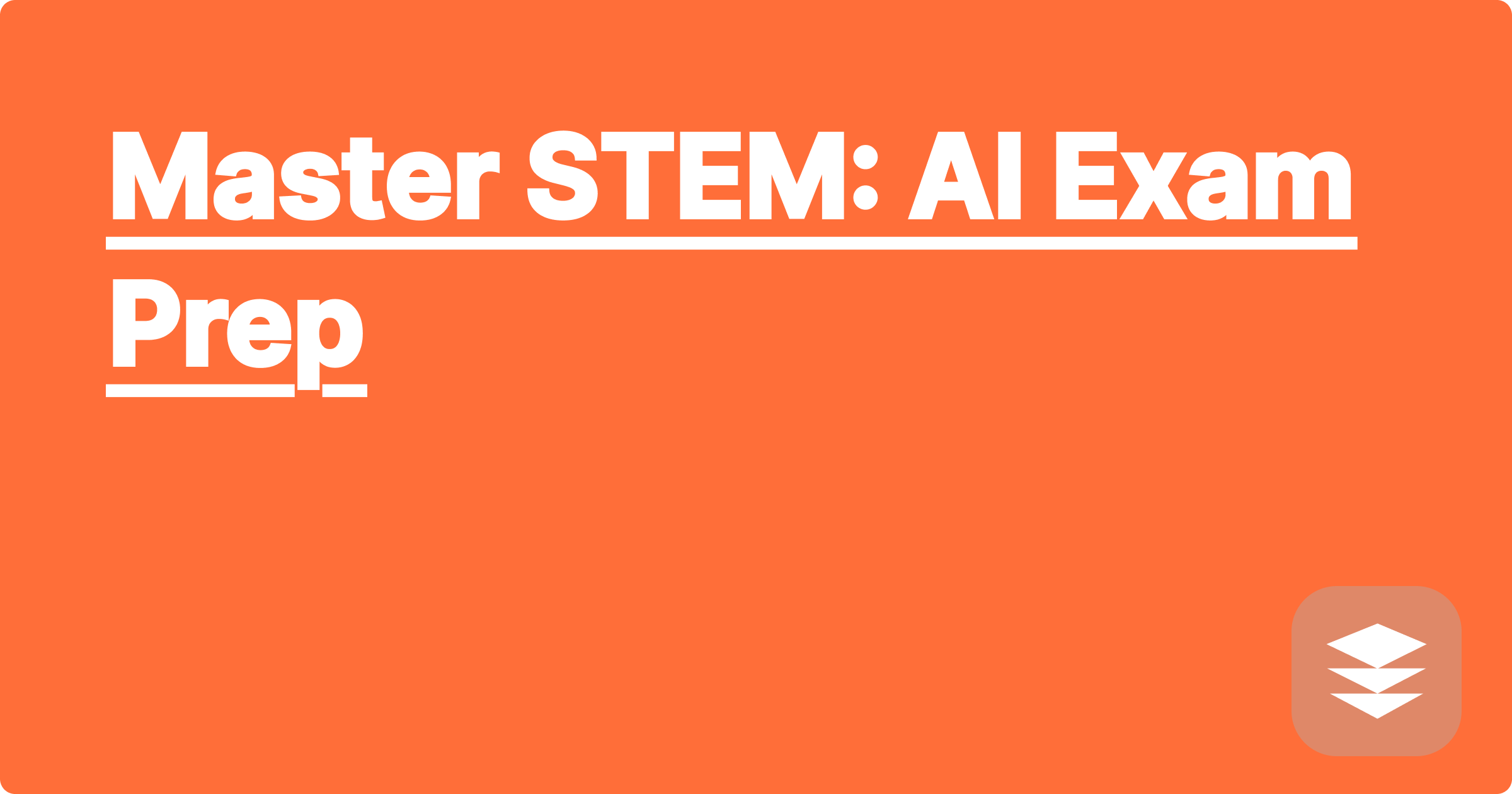
The world of STEM presents a unique challenge: a vast and ever-expanding body of knowledge that requires deep understanding and application. Traditional study methods often struggle to keep pace with this complexity, leaving students feeling overwhelmed and underprepared. Artificial intelligence, however, offers a powerful new approach to mastering STEM subjects, providing personalized learning experiences and unlocking insights previously inaccessible through conventional techniques. From generating practice questions to explaining complex concepts, AI tools are transforming how students prepare for exams and engage with STEM material.
This shift towards AI-powered learning is particularly relevant for STEM students and researchers who face increasingly demanding curricula and research expectations. Mastering these subjects requires not just memorization, but also a deep conceptual understanding and the ability to apply knowledge to novel problems. AI tools can bridge this gap by providing personalized support tailored to individual learning styles and knowledge gaps. This allows students to focus on developing critical thinking skills and applying their knowledge in practical contexts, ultimately leading to better exam performance and research outcomes.
STEM exams often present a significant hurdle for students due to the sheer volume of information and the complex nature of the concepts. Students frequently struggle with applying theoretical knowledge to practical problem-solving, often resorting to rote memorization which hinders true understanding. This leads to difficulty in tackling unfamiliar questions and a lack of confidence in applying learned concepts. Furthermore, traditional study methods can be inefficient, requiring significant time and effort with limited personalized feedback. This can result in frustration and a sense of being overwhelmed, especially when dealing with subjects like calculus, physics, or advanced chemistry. The traditional one-size-fits-all approach of textbooks and lectures often fails to address the individual learning needs of each student, further exacerbating the challenge.
AI-powered tools like ChatGPT, Claude, and Wolfram Alpha offer a transformative approach to STEM exam preparation. These tools can personalize the learning experience by providing customized practice questions, tailored explanations, and instant feedback. For instance, a student struggling with calculus integration can use Wolfram Alpha to not only solve specific problems but also visualize the concepts graphically. ChatGPT and Claude can be used to generate practice questions on specific topics, offering detailed explanations and alternative approaches to problem-solving. These AI assistants can also break down complex concepts into smaller, more manageable chunks, making them easier to understand and remember. By leveraging these AI capabilities, students can move beyond rote memorization and develop a deeper conceptual understanding of the subject matter.
Begin by identifying the specific STEM topics you need to study. Then, use an AI tool like ChatGPT or Claude to generate practice questions related to these topics. You can specify the difficulty level and the type of questions you want, such as multiple-choice, true/false, or open-ended problems. After attempting the questions, use the AI tool to check your answers and receive detailed explanations for any incorrect responses. This allows you to identify your weaknesses and focus your study efforts on the areas where you need the most improvement. Next, use Wolfram Alpha to explore complex concepts and visualize them through graphs, charts, and interactive simulations. This can help you develop a deeper understanding of the underlying principles and their practical applications. Finally, revisit your notes and textbooks to reinforce your understanding and fill in any remaining knowledge gaps.
Consider a student preparing for a physics exam on projectile motion. They could use ChatGPT to generate practice questions like, "A ball is thrown at an angle of 30 degrees with an initial velocity of 20 m/s. Calculate the maximum height reached by the ball." ChatGPT can provide not only the answer but also a step-by-step solution using the relevant kinematic equations, like h = (v²sin²θ) / 2g. Furthermore, the student can use Wolfram Alpha to visualize the trajectory of the projectile, exploring how changing the initial velocity or angle affects the maximum height and range. In another scenario, a student studying chemical reactions could use ChatGPT to explain the concept of equilibrium constants and generate practice problems involving calculating equilibrium concentrations. They could then use Wolfram Alpha to plot the equilibrium constant as a function of temperature, gaining a deeper understanding of the relationship between these variables.
To effectively integrate AI into your STEM studies, start by identifying the specific areas where you need the most support. Focus on using AI tools to strengthen your conceptual understanding and develop problem-solving skills rather than simply relying on them for answers. Actively engage with the AI by asking clarifying questions and exploring different approaches to problem-solving. Combine AI-powered learning with traditional study methods like reviewing notes and working through textbook examples. This blended approach will maximize your learning potential and prepare you for a wider range of exam questions. Regularly assess your progress and adjust your study plan accordingly, leveraging AI to target your weaknesses and reinforce your strengths.
In conclusion, AI offers a powerful set of tools for STEM students and researchers looking to improve their exam performance and deepen their understanding of complex concepts. By leveraging the capabilities of tools like ChatGPT, Claude, and Wolfram Alpha, students can personalize their learning experience, receive targeted feedback, and develop critical problem-solving skills. Embrace these AI-powered resources and integrate them into your study routine to unlock your full academic potential and achieve success in the challenging world of STEM. Start exploring these tools today and discover how they can transform your learning journey.
Ace STEM Exams: AI Study Planner
AI for Lab Data: Analysis Made Easy
AI in Engineering: Boost Your R&D